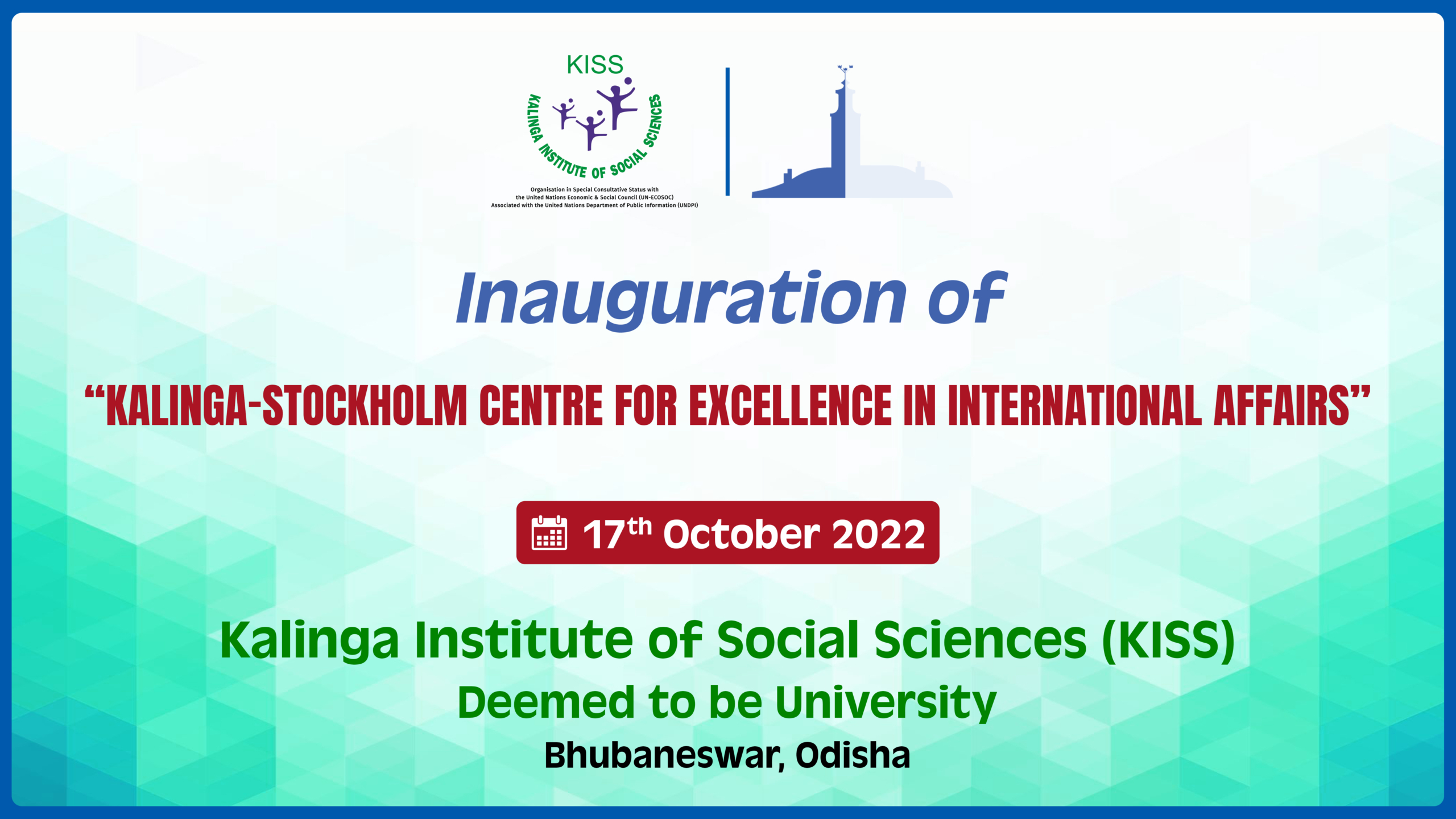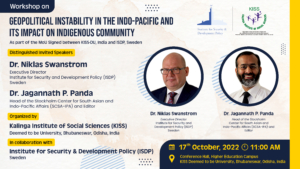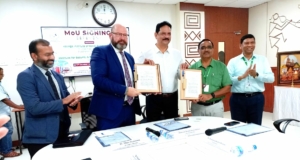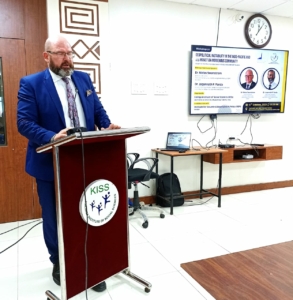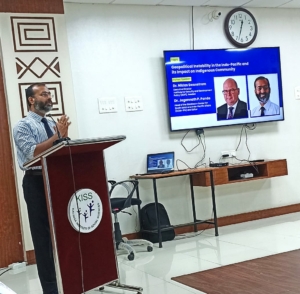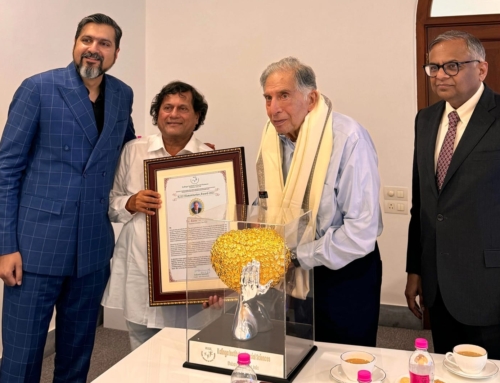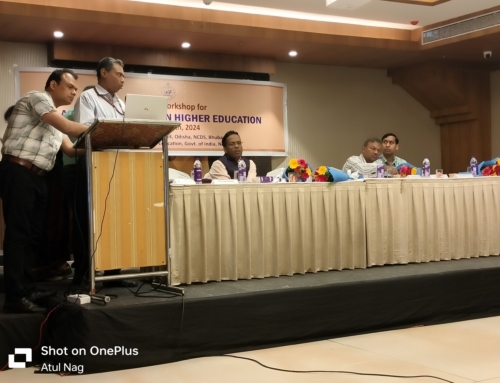The Kalinga Institute of Social Sciences (KISS) Deemed to be University launched Kalinga-Stockholm Centre for Excellence in International Affairs, in an impressive inaugural ceremony at KISS-DU premises on 17th October 2022. The Centre, established in close collaboration with the Institute for Security and Development Policy (ISDP), Stockholm, will work towards drawing principles from indigenous perspectives to address contemporary policy challenges in the Indo-Pacific region, with regard to biodiversity and climate change. It will also focus on putting together an influential body of literature on the indigenous communities in the region, along with offering a platform for the various indigenous communities across the Indo-Pacific region, to exchange information and work out a common series of approaches to security, development and governance studies and research.
As a part of the MoU signed between KISS-DU and ISDP, a workshop on ‘Geopolitical Instability in the Indo-Pacific and its Impact on Indigenous Community’ was also organized. Dr. Niklas Swanstrom, Executive Director, Institute for Security and Development Policy, Sweden and Dr. Jagannath P. Panda, Head of the Stockholm Centre for South Asian and Indo-Pacific Affairs (SCSA-IIPA) and Editor, Sweden were invited as distinguished speakers on the occasion.
Professor Deepak Kumar Behera, Vice Chancellor of KISS-DU, in his welcome address, described KISS-DU as an institution dedicated to innovation. He referred to some of the unique initiatives the university has lately carried out, such as the Professors of Practice, Emeritus Professors, and various Schools and Centres with an emphasis on exploring various aspects of tribal heritage and diversity.
Speaking on the occasion, Dr. Niklas Swanstrom, outlined some of the possible models for the Centre. Even though indigenous communities across the world often find themselves marginalized from mainstream development or governance processes, by a quirk of nature, their habitations also make them the proud owners of nearly eighty percent of the world’s biodiversity resources. At the same time, geopolitical uncertainties in the Indo-Pacific, particularly the rising ambitions of China, potentially threaten the interests of several indigenous communities in the region. Recalling the experience of the Sami community, to which he himself belongs, and which was recognized as a minority indigenous community in 1977, Dr. Swanstrom argued for increasing conversions among various indigenous communities leading to greater participation in the democratic processes among the minorities. He also outlined five focus areas for the Centre, including security studies, development studies, global governance studies, area studies with a comparative orientation and publication of a high-quality journal.
Addressing the workshop, Dr. Jagannath P. Panda, described the formation of the Centre as a dream come true for a Non-Resident Odia. He had long wanted to contribute to a better quality of life for the marginalized and unattended. Recalling his conversations with the Founder of KIIT and KISS, Dr. Achuyta Samanta, Dr. Panda said the Centre and its work will help in raising the international profile of these two stellar institutions. Applauding the efforts of KISS, he said that the institution has been working on the socio-economic development of those who are unattended for 29 years and counting. Further, he also said that the KISS model of successfully imparting education and employment to a large number of indigenous students deserved to be replicated elsewhere as a successful case study of democratic empowerment through education.
In the discussion that followed, members of the KISS-DU faculty offered constructive suggestions about potential themes for research, such as comparative linguistics, the efficacy of mother tongue-based education for indigenous communities, and possible institutional architecture of the Centre.
Dr. Prashanta Kumar Routray, Registrar, KISS-DU commended the action research agenda of the Centre and wished it a bright future.

